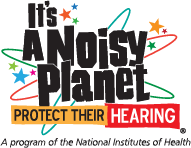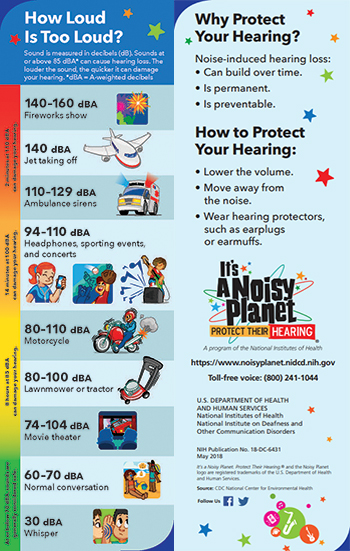
Loud noises happen where you might not expect them, from your home kitchen to the school cafeteria.
If the dishwasher is running, you might turn up the volume on a nearby TV to hear it better. Add a blender and a vacuum cleaner, and you might turn up the volume even more. All those noises can put you at risk for hearing loss if you’re not careful.
What sounds can damage your hearing?
Sound is measured in units called decibels (dB), just as height is measured in feet or inches. Because people can’t hear all frequencies, or pitches of sound, A-weighted decibels (dBA) can be used to describe sound based on what human ears can actually hear.
Noise adds up over a lifetime. If you are often exposed to loud sounds, your risk for permanent damage grows over time. Even a single but long-lasting or extremely loud event can cause damage.
Sounds at or below 70 dBA are usually considered safe. Noises are more likely to damage your hearing if they are:
- 85 dBA and last a few hours.
- 100 dBA and last at least 14 minutes.
- 110 dBA and last at least 2 minutes.
Here are the decibel levels of common sounds:
- Pin drop: 0 dBA
- Whisper: 30 dBA
- Normal conversation: 60-70 dBA
- Movie theater: 74-104 dBA
- Heavy city traffic, school cafeteria: 85 dBA
- Lawnmower or tractor: 80-100 dBA
- Motorcycle, dirt bike: 80-110 dBA
- Music player through headphones at maximum volume, concerts, and sporting events: 94-110 dBA
- Ambulance siren: 110-129 dBA
- Jet taking off: 140 dBA
- Fireworks show: 140-160 dBA
Hearing loss from too much noise may not be noticeable at first, but the damage can build over time, and it can’t be fixed. Learn how to protect your hearing from noise.




